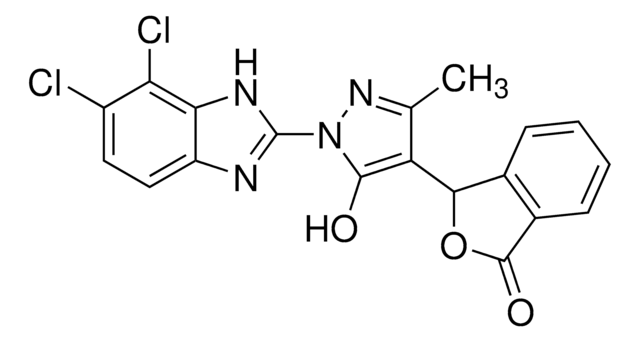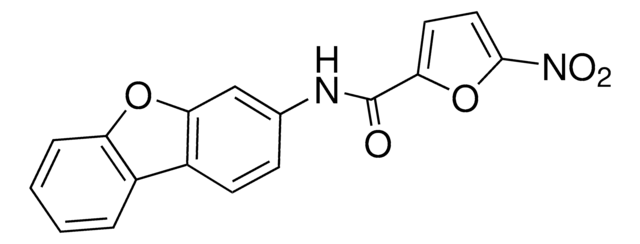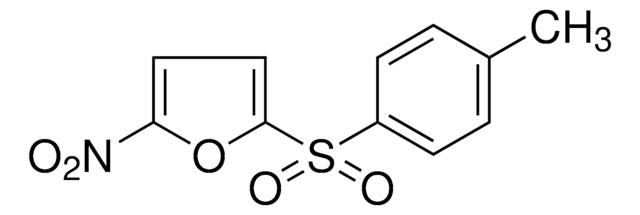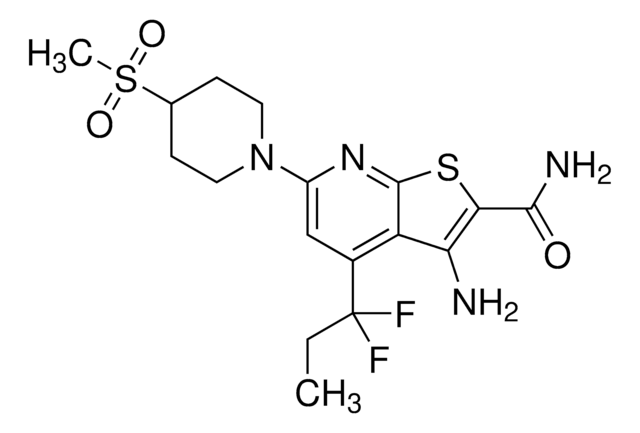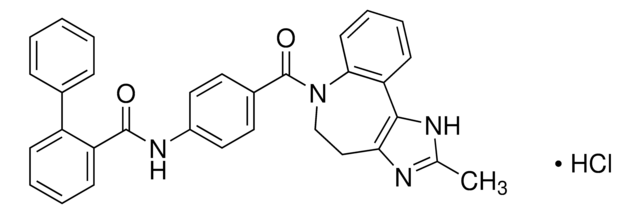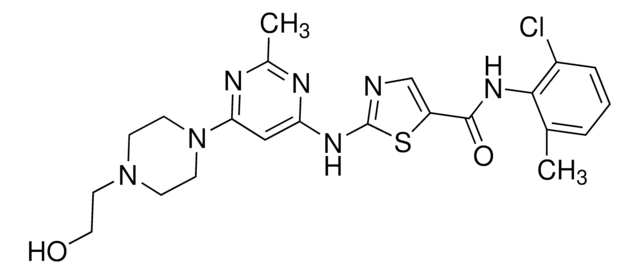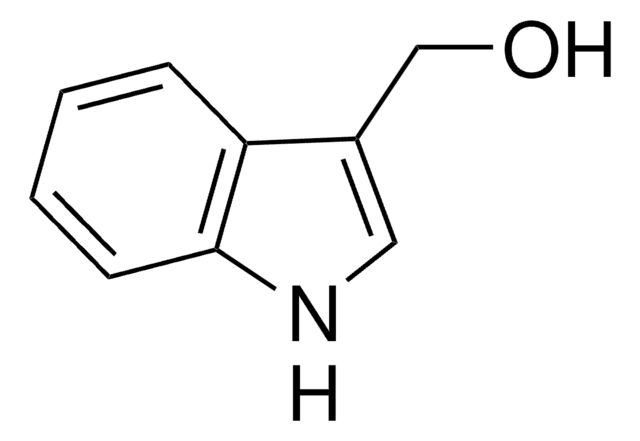SML2437
H-151
≥98% (HPLC)
Sinónimos:
1-(4-Ethylphenyl)-3-(1H-indol-3-yl) urea
Iniciar sesiónpara Ver la Fijación de precios por contrato y de la organización
About This Item
Fórmula empírica (notación de Hill):
C17H17N3O
Número de CAS:
Peso molecular:
279.34
MDL number:
UNSPSC Code:
12352200
NACRES:
NA.77
Productos recomendados
assay
≥98% (HPLC)
form
powder
color
white to beige
solubility
DMSO: 2 mg/mL, clear
storage temp.
2-8°C
Biochem/physiol Actions
H-151 is an irreversible antagonist of the stimulator of interferon genes (STING) protein, a central signalling component of the cytosolic DNA sensing pathway. Although STING is a vital component of the innate immune pathways, it has also been shown to have a pathogenic role in some inflammatory diseases. H-151 is a potent and selective STING antagonist with inhibitory activity both in human cells and in vivo in mice. Given as a pretreatment, H-151 was shown to attenuate pathological features of autoinflammatory disease in mouse models, reducing systemic cytokine responses in mice treated with the STING agonist 10-carboxymethyl-9-acridanone (CMA)
Storage Class
11 - Combustible Solids
wgk_germany
WGK 3
flash_point_f
Not applicable
flash_point_c
Not applicable
Certificados de análisis (COA)
Busque Certificados de análisis (COA) introduciendo el número de lote del producto. Los números de lote se encuentran en la etiqueta del producto después de las palabras «Lot» o «Batch»
¿Ya tiene este producto?
Encuentre la documentación para los productos que ha comprado recientemente en la Biblioteca de documentos.
J H Hamman et al.
Drug development and industrial pharmacy, 29(2), 161-172 (2003-03-22)
N-trimethyl chitosan chloride (TMC) is a polycation that enhances drug transport across epithelia by opening tight junctions. The degree of quaternization of TMC determines the number of positive charges available on the molecule for interactions with the negatively charged sites
Amir K Varkouhi et al.
Bioconjugate chemistry, 21(12), 2339-2346 (2010-11-06)
N,N,N-Trimethylated chitosan (TMC) is a biodegradable polymer emerging as a promising nonviral vector for nucleic acid and protein delivery. In the present study, we investigated whether the introduction of thiol groups in TMC enhances the extracellular stability of the complexes
Nuestro equipo de científicos tiene experiencia en todas las áreas de investigación: Ciencias de la vida, Ciencia de los materiales, Síntesis química, Cromatografía, Analítica y muchas otras.
Póngase en contacto con el Servicio técnico